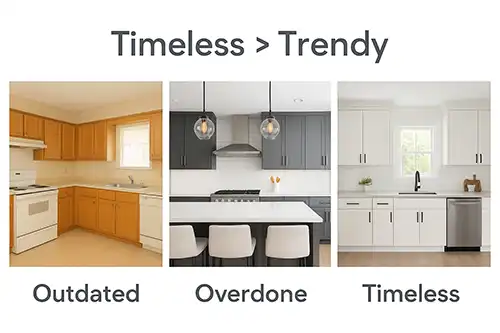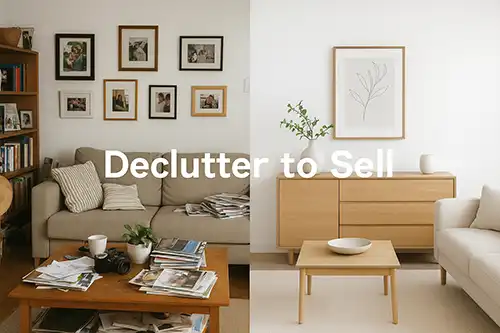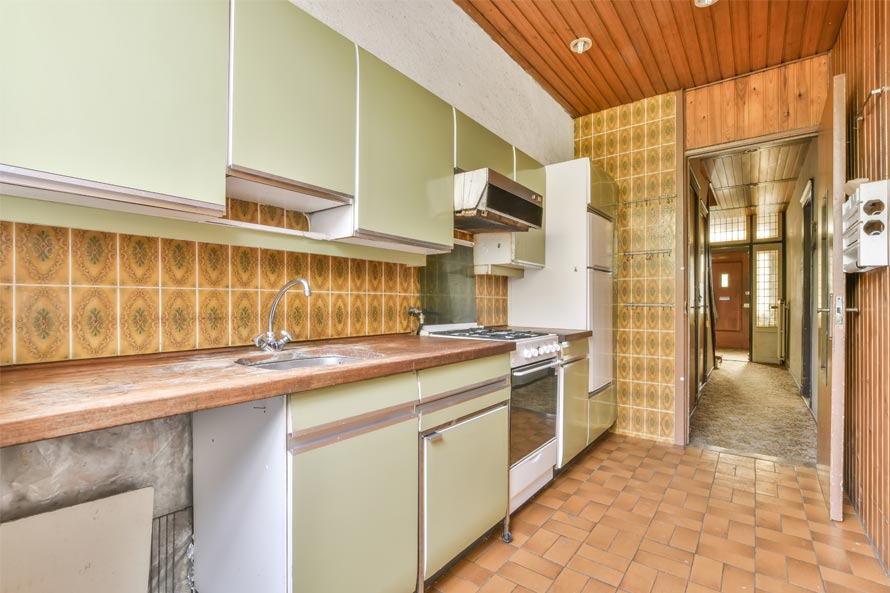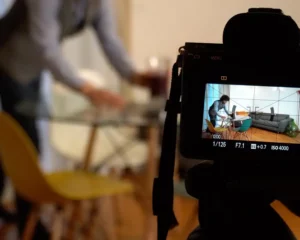What Hurts Your Property Value? 13 Surprising Dealbreakers
Quick Overview: Surprising Things That Lower Home Value
Not all dealbreakers are obvious when it comes to property value. Beyond major repairs, small details and overlooked issues can quietly hurt your home’s worth.
- Poor curb appeal from neglected landscaping or exterior maintenance
- Outdated kitchens or bathrooms that don’t match buyer preferences
- DIY repairs or unpermitted work that raise safety concerns
- Strong odors, unusual paint, or too much carpet that turn buyers away
Staying proactive with maintenance and design choices helps protect your investment and keep your property value strong.
When it comes to selling your home or protecting your investment, knowing what detracts from your home’s value is just as important as knowing what enhances it. While most people know that major issues like foundation problems or a leaky roof can scare off buyers, plenty of less obvious dealbreakers can quietly chip away at your property’s worth. Some of the biggest red flags are surprisingly easy to miss, from quirky design choices to neglected maintenance tasks. Whether you’re planning to sell soon or just want to keep your home’s value strong for the future, here are some unexpected factors worth paying attention to.
13 Surprising Factors That Affect Your Home Value
When preparing for your next home improvement project or getting ready to sell your home, it’s good to know what adds value… and what decreases it. To gain some insight, here are a few surprising factors that can impact a home appraisal and the overall value of the property.
1. Poor Curb Appeal
This one is fairly common knowledge, but just how much can poor curb appeal hurt your home’s value? One study found that homes with good landscaping sold for 5.5% to 12.7% more than homes with average or poor landscaping, and that’s just one part of curb appeal.
Other factors that can negatively affect curb appeal include peeling exterior paint, outdated appliances, lack of general maintenance, cracks in the sidewalk or driveway, outdated exteriors, and even trash in the yard (yes, it’s worth mentioning). Fortunately, you can easily enhance your curb appeal with minimal effort. You don’t need to get professional landscaping, but adding a few flowers and making sure the grass is well cared for can go a long way. You can also add a fresh coat of paint or even powerwash your siding and driveway to help enhance the appraised value. Remember, first impressions carry a lot of value regarding local real estate!
2. Outdated (and Overdone) Kitchens or Bathrooms



Another factor that can impact your home’s resale value is the condition of your kitchen and bathrooms. While it’s easy to understand why potential buyers might not want a kitchen from the 1980s, going too far in the other direction may also hurt a home’s value. Kitchens that are too modern or overly trendy with tons of personalized or specialized features might not appeal to prospective homeowners. Instead, more universal and timeless trends are better for adding value.
This same mentality applies to bathrooms. For example, bathroom remodels with ultra-luxury features (i.e., a large soaking tub in the center of the room or wall-to-wall marble) might not align with neighborhood norms and can deter buyers. Many people just want functional, neutral spaces, rather than high-maintenance features they may never use.
3. DIY Repairs Gone Wrong
This may seem obvious, but it’s worth emphasizing: poorly executed DIY repairs can drastically lower your home’s value. Even if you’re handy, buyers and appraisers quickly notice uneven tile, misaligned cabinetry, or sloppy finishes. And those red flags often translate to lower offers.
Worse, if your repairs weren’t done with the proper permits or to code, buyers may be required to fix or undo them, which could delay or derail a sale. When in doubt, it’s better to bring in a licensed professional or at least get your work inspected.
4. Lack of Natural Light
A dark, dimly lit home can feel smaller and less welcoming, which can directly impact both the appraised value and buyer interest. Heavy curtains and outdated window treatments can block natural light without you even realizing it. While you might not be able to add new windows or skylights before selling, a few strategic changes can make a big difference. Select window treatments that complement the room’s natural light while still providing privacy.
5. Strong or Unpleasant Odors
Nobody likes walking into a home and smelling something… funky. Whether it’s lingering pet smells, moldy basements, cigarette smoke, or even an overwhelming air freshener, bad smells are an instant dealbreaker.
Worse still, some odors hint at bigger issues, like water damage or poor ventilation. To protect your home’s value, be proactive about cleaning, ventilating, and addressing the root cause of any persistent smells before you list your property.
6. Loud or Unusual Paint Colors
Although a hot pink accent wall or black-painted walls in the bathroom might fit your aesthetic, they can negatively impact a home’s value during a sale. Yes, they can be painted over if a buyer doesn’t like them, but that’s not the issue. Bold or dark colors tend to distract people from the room’s actual features. This can make things feel cramped or chaotic rather than serene and open. It’s usually one of the reasons you see so many neutral colors on housing market listings.
7. Too Much Carpet
Carpet isn’t necessarily bad, but too much of it can be a turnoff. Many buyers today prefer hard flooring options that are easier to clean and maintain. Old carpet may also raise concerns about allergens, odors, or hidden damage. If your carpet looks a bit outdated or excessive, consider getting it removed. You might be pleasantly surprised by what’s underneath!
8. Over-Personalized Decor and Messy Rooms



There’s a reason many real estate agents ask you to remove any pictures of you and your friends or family when you put your home for sale. Personalization can make it difficult for people to envision the home as their own. While this may not significantly decrease the value of your home, it can reduce the number of interested buyers and make potential buyers less enthusiastic about making a good offer.
9. Converted Garages or Basements (Without Permits)
Renovating the garage or basement can be a way to increase the value of your home; however, when done improperly or without permits, it can become a problem. Not only do unpermitted renovations raise safety concerns, but they also prevent the added space from being included in the official square footage. Therefore, the remodel essentially adds no value; so, always get your permits.
10. Proximity to Eyesores (or Controversial Areas)
Unfortunately, this one may be out of your control. But if your home is surrounded by eyesores or controversial areas (e.g., power lines, cell towers, train tracks, busy roads, industrial plants, a prison, funeral homes, or even a party area), it will impact the property value. There are some steps you can take to help increase the appraisal value and counterbalance potential negatives, but be prepared for a bit of pushback from potential buyers.
11. Too Much “Smart” Tech
Surprisingly, loading your home with every smart feature under the sun can also backfire. Not all buyers are tech-savvy, and if the system seems complicated or likely to become outdated quickly, it can feel more like a hassle than a perk. Keep it simple, and if you include smart tech, ensure it’s user-friendly and easy to remove or update.
12. Lack of Storage Space
Storage isn’t something people always notice when it’s there, but they’ll definitely notice when it’s missing. Homes without enough closets, garage space, or attic access feel cramped and less livable. Buyers are often looking for room to grow, so if your home lacks storage options, it may be worth investing in creative storage solutions or staging rooms to highlight existing storage more effectively.
13. Unusual Floor Plans
A strange or inefficient floor plan can leave buyers scratching their heads and questioning a home’s functionality. Combining bedrooms to make a giant closet or creating rooms without doors or logical flow can reduce your home’s appeal and livable square footage. While open concepts are still popular, there’s a fine line between modern and confusing. If you’re renovating, try to preserve natural room divisions and avoid layouts that only work for a specific lifestyle.
Are You Interested in Your Home’s Property Value?
Maintaining or increasing your home’s value comes down to making intelligent, informed decisions, regardless of whether you’re choosing paint colors or planning major renovations. If you’re considering selling and want expert advice on boosting your property’s marketability, the team at First Star Realty is here to help. Our experienced agents know what buyers are looking for and can guide you through every step of the process, from staging tips to pricing strategy. Contact us today to schedule a consultation and receive personalized advice tailored to your home.



